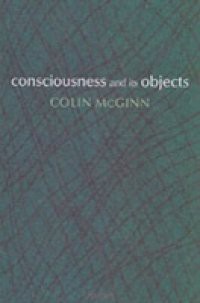Colin McGinn presents his latest work on consciousness in ten interlinked essays, four of them previously unpublished. He extends and deepens his controversial solution to the mind-body problem, defending the view that consciousness is both ontologically unproblematic and epistemologically impenetrable. He also investigates the basis of our knowledge that there is a mind-body problem, and the bearing of this on attempted solutions. McGinn goes on to discuss the status of first-person authority, the possibility of atomism with respect to consciousness, extreme dualism, and the role of non-existent objects in constituting intentionality. He argues that traditional claims about our knowledge of our own mind and of the external world can be inverted; that atomism about the conscious mind might turn out to be true; that dualism is more credible the more extreme it is; and that all intentionality involves non-existentobjects. These are all surprising positions, but he contends that what the philosophy of mind needs now is 'methodological radicalism' - a willingness to consider new and seemingly extravagant ideas.

